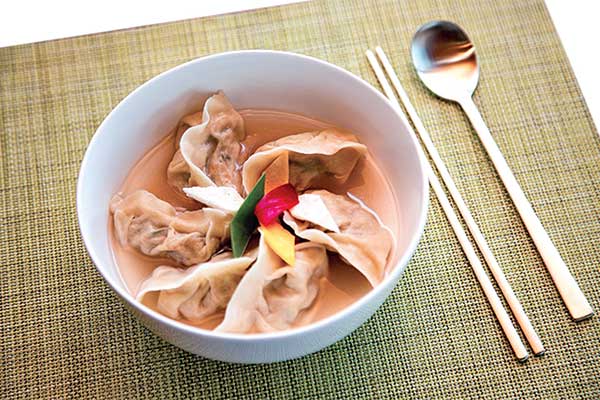Popular Reads
Top Results
Can't find what you're looking for?
View all search resultsPopular Reads
Top Results
Can't find what you're looking for?
View all search resultsAuthentic Korean home-cooking in Jakarta
The traditional Korean meals are made using family recipes.
Change text size
Gift Premium Articles
to Anyone
Enjoying delicious Korean food is easy in Jakarta nowadays, as the choice of such restaurants is vast.
Fans of the food are perhaps familiar with dishes such as bulgogi (barbecued beef), kimchi (fermented vegetables), ddukbokki (spicy rice cake) and bibimbap (mixed rice). However those wanting to try authentic Korean home-cooked meals may be interested in dining at The Westin Jakarta.
"The meals we're offering today are very common home-cooked dishes in Korea, particularly in Seoul," said Sohn Ho-gyeong, who is accompanied by Park Yongmi, during the launch of the "Seoul Food" culinary promotion on Friday.
Sohn is a diplomat's wife who often cooked for the Korean communities in several countries, such as Sweden and England, during her husband's postings. The traditional Korean meals she is serving are made using family recipes passed down from her mother.
Read also: Get to know Chuseok, Korean Thanksgiving
"Korean dishes taste different in different regions. In southern Korea, such as in Busan for instance, where the weather is hotter, we tend to use lots of salt and make more fermented dishes. Hence, Busan dishes are known for their spiciness and saltiness. In the northern part of the country, the food is less salty. Seoul is kind of in the middle [in terms of taste]," said Sohn.
However, the same dishes are generally served in different regions of Korea.
When asked what makes the food authentic, Sohn said the cooking method and ingredients were among the most important things to note.
"[Korean families] usually have their own special recipe when cooking. Our dumpling skin, for instance, is different from Chinese dumpling skin. We also roll them differently and use different stuffing. This all makes the dishes authentic," Sohn said.
Being the perfectionist she is, Sohn initially refused to garnish her dishes due to the authenticity factor. When we visited her station at the hotel's all-day dining restaurant Seasonal Tastes, we found her cutting japchae (sweet and savory stir-fried glass noodles and vegetables) that was being served there using scissors as they were not supposed to be served that way.
From the delightful mandu-guk (dumpling soup) and delicious galbi-jjim (braised short ribs) to gjibokkeum (seasoned eggplant), the duo and executive sous chef Denny Boy Gunawan's authentic "Seoul Food" is available every day until Oct. 13 with a starting price of Rp 388,000++ (US$27.42).










